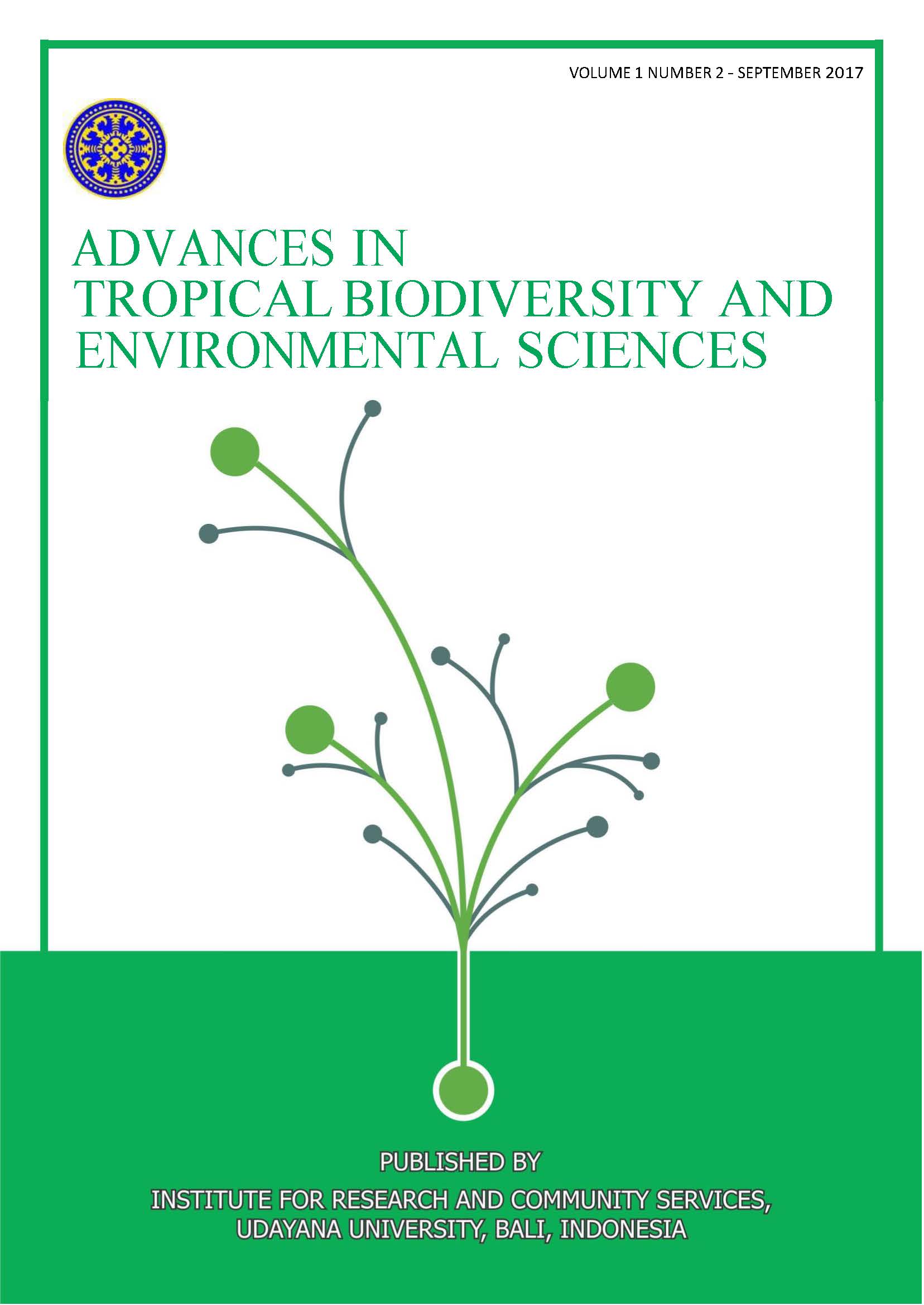Determination of Flavonoid, Tannin and Vitamin C Content from Methanol Extract Wrapping Stone Banana (Musa brachycarpa), Ketip Banana (Musa Paradisiaca Forma Typiaca) and Kepok Banana (Musa acuminata)
Abstract
Research has been done to investigate the levels of flavanoid, tannin, and vitamin C of methanol extract of Stone banana (Musa brachycarpa), Ketip banana (Musa paradisiaca forma typiaca ), and Kepok banana (Musa acuminata). Jukut Ares is a Balinese traditional cuisine frequently served in any events of celebrations. The use of young stems of such banana varieties as the main raw materials in the process of making jukut ares has not been scientifically elucidated. Antioxidants are compounds with ability to inhibit oxidation-related reactions due to free radicals that cause disturbance of saturated fatty acids of cell membrane, blood vessels, DNA, as well as adipose tissues which lead to occurrence of various diseases. Plants components will have antioxidant activities if they contain compounds (phenol and flavanoid) with ability to scavenge free radicals. Tannin is a water based phenolic compound and vitamin C is also a water based vitamin that play important roles in preventing us from various diseases. Extraction was conducted by applying maceration method and to investigate the levels of flavanoid, spectrophotometric UV vis with aluminum chloride (AlCl3) was applied. The level of vitamin C of the materials was conducted by Iodine titration method, while the level of tannin was determind by applying spectrophotometri. The results showed that methanol extract of Ketip banana stem contained the highest level of flavanoid with a quantity of 53.13 mg/100gr QE, and this was followed by stone banana (36.28) and kepok banana (32.07) The highest vitamin C level was indicated in the extract of ketip banana (418.32 mg/100gr), which is followed by kapok banana and stone banana. In the calculation of tannin content, pisang ketip showed the highest level, while pisang batu contained the lowest level of tannin.













